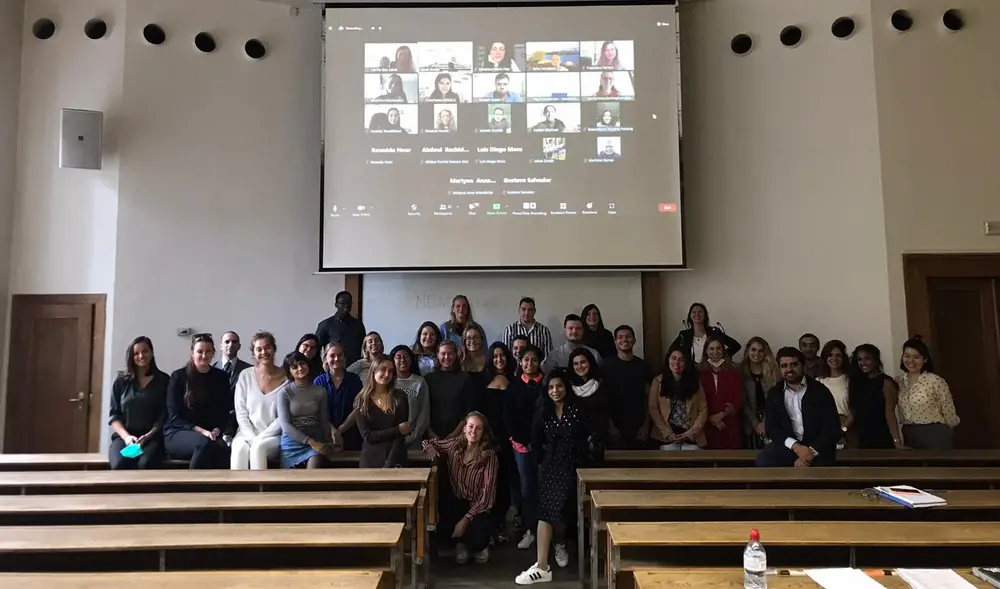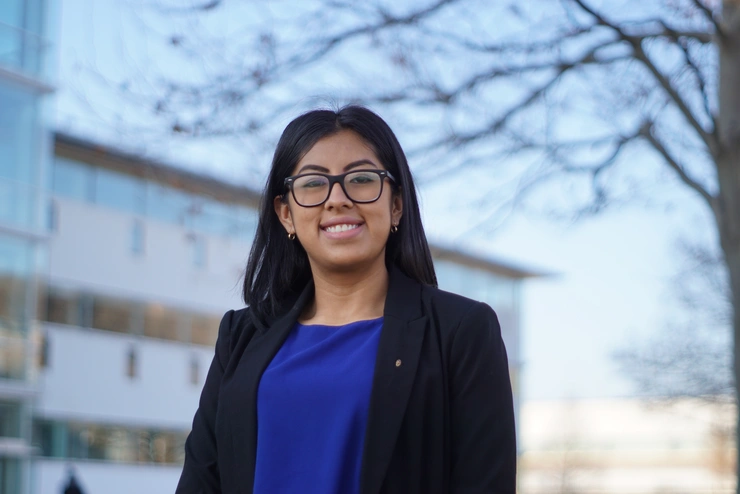IOM Summer School 2021: Migration as an ongoing global challenge

There are different reasons people migrate, such as conflicts, natural disasters, job opportunities, or family reunification. Human beings have always been in constant movement, and it is something that will continue to happen. In 2020, a total of 280.6 million international migrants were registered. Hence, it is necessary to recognize that migration is a global challenge and that the migratory phenomenon will continue or increase.
IOM Summer School on Migration Studies 2021
In August, I had the opportunity to attend the 13th Summer School on Migration Studies organized by the International Organization for Migration (IOM). It took place between the 23rd and 27th of August in the capital of the Czech Republic, Prague. The event had 76 participants in total; 36 attended in person and 40 online, most of whom were university students or young professionals. The program was divided into five different themes: Migration in the Czech Republic and the European Union; Migration and the Mediterranean; Migration and Forced Displacement (Case Study of Syria); Migration and the Americas; and Migration and Climate Change. The diversity of the topics made it possible to bring together 15 speakers from all over the world. Each of them had a different perspective on migration, its implications, and how it should be addressed. This made the event an enriching experience, in which discussion was always possible.
Although the event lasted only five days, it was very fruitful and enlightening, not only for the knowledge acquired in the formal sessions but also for exchanging ideas and thoughts with the other participants who, like me, were deeply interested in migration issues. The participants came from various organizations such as the United Nations High Commissioner for Refugees (UNHCR), the German Corporation for International Cooperation (GIZ), embassies, and civil society organizations. By talking to them, I was able to get a first-hand impression of the efforts being made worldwide to address migration issues. In addition, it gave me some guidance on how to start my professional career after graduation.
Remaining issues to be addressed
Migration is a highly complex phenomenon, which includes several aspects. One of them is the drivers leading to it. Migration caused by economic and security matters will continue to be relevant. Between 2008 and 2018, there was an annual average of 24.1 million people internally displaced by disasters, significantly more than the 7.4 million displaced by conflicts. In recent years, it became evident that particular emphasis needs to be placed on environmental migration. The IOM defines environmental migrants as “persons or groups of persons who, predominantly for reasons of sudden or progressive change in the environment that adversely affects their lives or living conditions, are obliged to leave their habitual homes or choose to do so, either temporarily or permanently, and who move either within their country or abroad”. Climate migration is a challenge for several reasons. First, there is not an international agreement on the definition of who is environmental or climate migrant. This leads to the second problem; there is no accurate data on how many people have moved because of environmental impacts at an international level. Finally, the absence of a legal framework. Although initiatives such as the Cancun Agreements or the Nassau Initiative have been adopted, they are not legally binding instruments. Addressing this issue requires governments to develop public policies, as most countries in the world do not have regulations on climate-induced migration.
Another pull factor for migration discussed during the event was extortion, which is characteristic of Central America. It creates fear based on the assumption that the government cannot protect its citizens. These extortions, also known as "rents" or "war taxes," are made through direct cash payments or the provision of food, goods, and services. While this is undoubtedly a matter that needs to be addressed, the problem again is that the quality and availability of data are limited. Victims are afraid to report or tell their stories because of possible reprisals.
Stateless persons are individuals who are not considered citizens or nationals under the operation of the laws of any country. When one talks about migration, it is not usually directly associated with statelessness, which is a mistake because it is both a cause and a consequence of migration. On the one hand, those with this status are forced to move because they are denied access to basic services such as health care, education, or employment. On the other hand, people who migrated face a lack of documentation as well as the inability to register their children since they are not recognized by any state due to the conflict between the principles of jus soli and jus sanguinis. In many cases, stateless persons are treated as irregular aliens in the country where they were born. Additionally, they are often discriminated against, especially if they are part of a minority group. Addressing this issue is undoubtedly a challenge that requires the joint work of international organizations, government, academia, and civil society.
Final thoughts
The summer school was undoubtedly a unique and enriching experience. I reinforced my knowledge on some topics, such as the Venezuelan migration crisis in Latin America or the Syrian refugee crisis. However, it also introduced me to new fields of study such as environmental migration, extortion, and statelessness, which are critical areas that still require further investigation. Finally, I would like to thank the IOM Czech Republic Office for making this space possible. It allowed me to acquire new knowledge and connect with people working on migration issues. But above all, it opened my eyes to new areas in which I could focus my career in the future.

About the author
Micaela Lincango is a second-year student at the Willy Brandt School of Public Policy. She comes from Ecuador and holds a bachelor’s in International Relations with a minor in Political Science. She worked on an Inter-American Development Bank project, which was focused on digital transformation within development banks in Latin America. At the same time, she collaborated with a World Bank project about meso evaluations and country interventions. Her passion is social work and for that reason, she has been volunteer in different organizations, such as AIESEC and TECHO, for more than 4 years.
~ The views represented in this blog post do not necessarily represent those of the Brandt School. ~